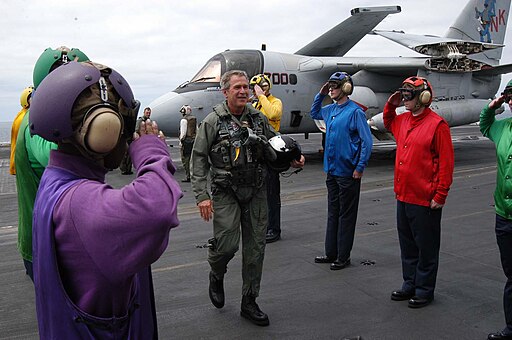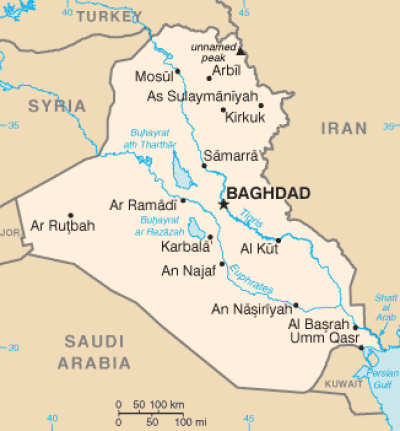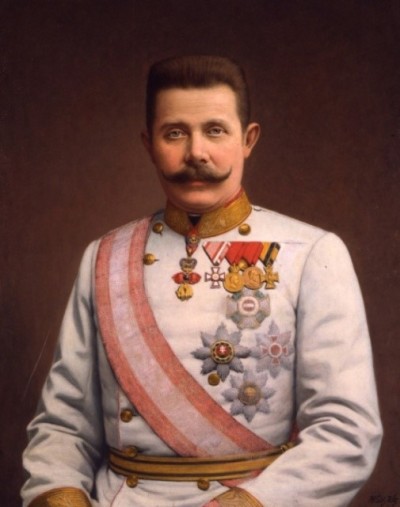Course description
The US Invasion of Iraq: A War for Oil
 Yes, the Iraq War was a war for oil, and it was a war with winners: Big Oil Companies.
Yes, the Iraq War was a war for oil, and it was a war with winners: Big Oil Companies.
It has been nearly twenty years since Operation Iraqi Freedom's bombs first landed in Baghdad. While most of the U.S.-led coalition forces have long since gone, Western oil companies are only getting started. Before the 2003 invasion, Iraq's oil industry was fully nationalized and closed to Western oil companies. A long, long war later, it is largely privatized and dominated by foreign firms.
From ExxonMobil and Chevron to BP and Shell, the West's largest oil companies have set up in Iraq. So have many American oil service companies, including Halliburton, the Texas-based firm which Dick Cheney ran before becoming George W. Bush's Vice President of the USA in 2000.
The war is the one and only reason for this new access. Oil was not the only goal of the Iraq War, but it was certainly the central one, as top U.S. military and political figures stated to believe in the years following the invasion.
"Of course it's about oil; we can't really deny that," said Gen. John Abizaid, former head of U.S. Central Command and Military Operations in Iraq, in 2007. Federal Reserve Chairman Alan Greenspan agreed, writing in his memoir, "I am saddened that it is politically inconvenient to say what everyone knows: the Iraq war is largely about oil." Then-Senator Chuck Hagel said the same in 2007: "People say we're not fighting for oil. Of course we are."
 For the first time in about 30 years, Western oil companies are exploring and producing oil in Iraq from some of the world's largest oil fields and earning enormous profits. The US has also continued with Iraq oil imports since the invasion but the benefits are not finding their way to Iraq's economy or society.
For the first time in about 30 years, Western oil companies are exploring and producing oil in Iraq from some of the world's largest oil fields and earning enormous profits. The US has also continued with Iraq oil imports since the invasion but the benefits are not finding their way to Iraq's economy or society.
These outcomes were deliberate, the result of a decade of U.S. government and oil company pressure. In 1998, Kenneth Derr, then CEO of Chevron, said, "Iraq possesses huge reserves of oil and gas-reserves I'd love Chevron to have access to." Today it does.
In 2000, Big Oil, including Exxon, Chevron, BP and Shell, spent more money to get fellow oilmen Bush and Cheney into office than they had spent on any previous election. Just over a week into Bush's first term, their efforts paid off when the National Energy Policy Development Group, led by Cheney, was formed, bringing the government and the oil companies together to plot our collective energy future. In March, the task force reviewed lists and maps outlining Iraq's entire oil production capacity.
Planning for a military invasion was soon under way. Bush's first Treasury secretary, Paul O'Neill, said in 2004, "Already by February (2001), the talk was mostly about logistics. Not why (to invade), but how."
In its final report in 2001, the task force argued that Middle Eastern countries should be encouraged "to open up their energy sectors to foreign investment." This is precisely what has been achieved in Iraq.
Here's how they did it. The State Department Future of Iraq Project's Oil and Energy Working Group met from February 2002 to April 2003 and agreed that Iraq "should be opened to international oil companies as quickly as possible after the war."
At the same time, oil company representatives met Cheney's staff in January 2003 to discuss plans for Iraq's postwar industry. For the next decade, past and current executives of western oil companies acted first as administrators of Iraq's oil ministry and then as "advisers" to the Iraqi government.
 Before the invasion, there were just two things standing in the way of Western oil companies operating in Iraq: Saddam Hussein and the nation's legal system. The invasion dealt with Hussein. To solve the second problem, some both inside and outside the government argued that it should change Iraq's oil laws through the U.S.-led coalition government of Iraq, which ran the country from April 2003 to June 2004. Instead the White House waited, choosing to pressure the newly elected Iraqi government to pass new oil legislation itself.
Before the invasion, there were just two things standing in the way of Western oil companies operating in Iraq: Saddam Hussein and the nation's legal system. The invasion dealt with Hussein. To solve the second problem, some both inside and outside the government argued that it should change Iraq's oil laws through the U.S.-led coalition government of Iraq, which ran the country from April 2003 to June 2004. Instead the White House waited, choosing to pressure the newly elected Iraqi government to pass new oil legislation itself.
This Iraq Hydrocarbons Law, partially written by the Western oil industry, would lock the nation into private foreign investment under the most corporate-friendly terms. President Bush pushed the Iraqi government both publicly and privately to pass the law. And in January 2007, as the ''surge" of 20,000 additional American troops was finalized, the president set benchmarks for the Iraqi government, including the passage of new oil legislation to "promote investment, national unity, and reconciliation."
But due to enormous public opposition and a reluctant parliament, the central Iraqi government has failed to pass the Hydrocarbons Law, saying it would give too much control to global companies and "ruin the country's future."
In 2008, with the likelihood of the law passing and the prospect of continued foreign military occupation dimming as elections were due in the U.S. and Iraq, the oil companies settled on a different track. Bypassing parliament, the firms started signing contracts that provide all of the access and most of the favorable treatment the Hydrocarbons Law would provide -- and the Bush government helped write the model contracts.
 On leaving office, Bush and Obama administration officials have even worked for oil companies as advisers on their Iraq business. The new contracts lack the security a new legal structure would give, and Iraqi lawmakers have argued that they run contrary to existing law, which requires government control, operation and ownership of Iraq's oil sector.
On leaving office, Bush and Obama administration officials have even worked for oil companies as advisers on their Iraq business. The new contracts lack the security a new legal structure would give, and Iraqi lawmakers have argued that they run contrary to existing law, which requires government control, operation and ownership of Iraq's oil sector.
But the contracts do achieve the key goal of the Cheney energy task force: all but privatizing the Iraqi oil sector and opening it to private foreign companies. They also provide exceptionally long contract terms and eliminate requirements that Iraq's oil stays in Iraq, that companies invest earnings in the local economy or hire a majority of local workers.
Iraq's oil production has increased by more than 40% in the past five years to 3 million barrels of oil a day (still below the 1979 high of 3.5 million set by Iraq's state-owned companies), but a full 80% of this is exported out of the country while Iraqis struggle to meet basic energy needs. Basic services such as water and electricity remain luxuries, while 25% of the population lives in poverty.
 The promise of new energy-related jobs across the country has not happened. The oil and gas sectors today account directly for less than 2% of total employment, as foreign companies use imported labor.
The promise of new energy-related jobs across the country has not happened. The oil and gas sectors today account directly for less than 2% of total employment, as foreign companies use imported labor.
Fed up with the firms, a leading coalition of Iraqi civil society groups and trade unions, including oil workers, declared on February 15, 2020, that international oil companies have "taken the place of foreign troops" and should "set a timetable for withdrawal."
Yes, the Iraq War was a war for oil, and it was a war with losers: the Iraqi people and all those who lost blood so that Big Oil could come out ahead.

 Yes, the Iraq War was a war for oil, and it was a war with winners: Big Oil Companies.
Yes, the Iraq War was a war for oil, and it was a war with winners: Big Oil Companies. For the first time in about 30 years, Western oil companies are exploring and producing oil in Iraq from some of the world's largest oil fields and earning enormous profits. The US has also continued with Iraq oil imports since the invasion but the benefits are not finding their way to Iraq's economy or society.
For the first time in about 30 years, Western oil companies are exploring and producing oil in Iraq from some of the world's largest oil fields and earning enormous profits. The US has also continued with Iraq oil imports since the invasion but the benefits are not finding their way to Iraq's economy or society. Before the invasion, there were just two things
Before the invasion, there were just two things  On leaving office, Bush and Obama administration officials have even worked for oil companies as advisers on their Iraq business. The new contracts lack the security a new legal structure would give, and Iraqi lawmakers have argued that they run contrary to existing law, which requires government control, operation and ownership of Iraq's oil sector.
On leaving office, Bush and Obama administration officials have even worked for oil companies as advisers on their Iraq business. The new contracts lack the security a new legal structure would give, and Iraqi lawmakers have argued that they run contrary to existing law, which requires government control, operation and ownership of Iraq's oil sector. The promise of new energy-related jobs across the country has not happened. The oil and gas sectors today account directly for
The promise of new energy-related jobs across the country has not happened. The oil and gas sectors today account directly for 
















